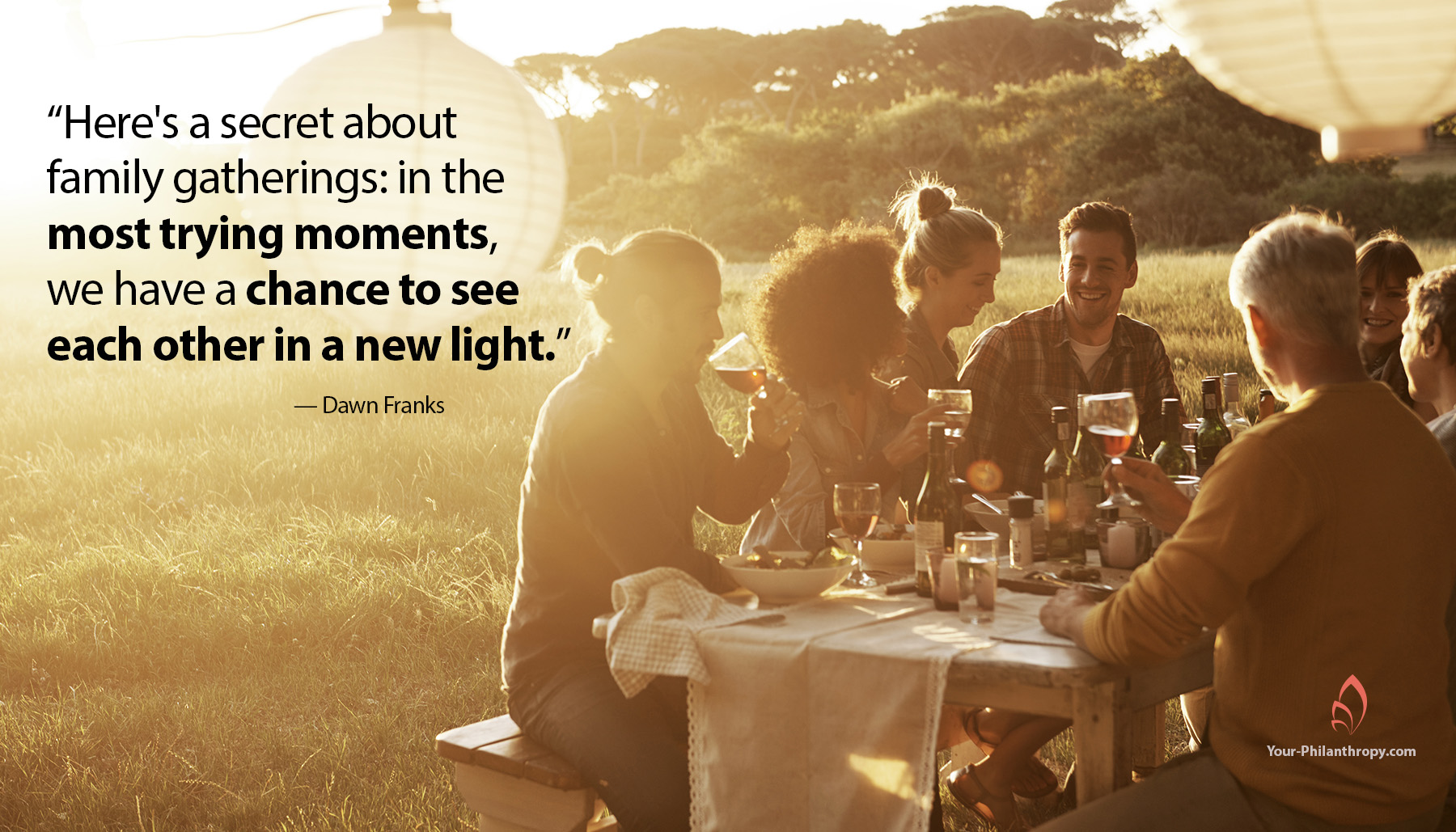Have you been to a family gathering this summer? Did you hear a story at the BBQ, Fourth of July celebration, reunion, or wedding reception?
You know, the story about your sibling, cousin, or grandparent that ends with, “that’s a good one.” A story has probably already come to mind. Was the story funny or heart-breaking, maybe some of both? Such stories are repeated; sometimes, they gain a life of their own.
I spend time with many families in the course of my work. So, I hear all kinds of stories. One family likes to tell the story of a pre-school child spending hours on the floor studying page after page of a set of encyclopedias. A fellow sibling was known for clowning around with everyone from the safety of the grocery cart while mom shopped for groceries. We might call one child a nerd and the other child a jokester.
As grown-ups, these same two children continue to play their role at family events. Everyone knows what to expect. The nerd is ready with the answers no matter the subject, and the jokester has a joke to tell.
At one family gathering, these two siblings debated the size of a gift to a local nonprofit. There was no right or wrong answer except in each of their minds. As the tension built and family members watched, the clash grew more heated. Finally, the nerd left the room, and the jokester made a great joke about how to win an argument.
The issue remained: how much should be given to the nonprofit? By the way, the nonprofit had been a longstanding recipient of gifts from the family. The nonprofit’s reputation and critical services were not in question.
The only question was which sibling would win.
I often talk about the value of a family learning to give together and encourage opportunities to learn about philanthropy as a family.
However, working to give together is stressful for many families based on longstanding roles and conflict.
I have experience with great family discussions, even amid conflict. So here are a few of my tips to spur productive family decisions and resolve disruptive conflicts.
Seven Tips for a Successful Family Discussion
- Neutral meeting location – if the family is intentional about working together to make collective decisions, a neutral meeting place can provide space for each member. Avoid the dinner table atmosphere where everyone automatically falls into their childhood role.
- Meeting agenda – even a family gathering can benefit from a simple agenda that identifies the important questions that need to be answered.
- Identify a leader – that doesn’t mean the oldest family member or the one with the most experience running a meeting. Allowing a younger family member to take the lead can reduce pressure on the family and lead to better decisions, not to mention training the next generation.
- Involve an outsider – including a nonfamily member in the discussion creates a different atmosphere in which everyone tries to be on their best behavior.
- Establish meeting rules – decide how decisions will be made. Consensus or majority rule. Older family members’ votes are weighted more heavily, or everyone has an equal vote. All opinions count, and there is no right or wrong answer.
- Assign a recorder – have a family member take notes for the meeting. This is not a “he said, she said” account but records decisions made.
- Establish a “cooling off” process – accept conflict as a natural part of making a decision. Decide early that any family member can call for a time-out and come back to a discussion and decision later.
Of all these ideas, my favorite is the outsider. It can be the game-changer to ensure your family finds a productive way to work together. And if the outsider has facilitation skills that include listening and valuing every family member, you will be much closer to a positive outcome.
The Secret Sauce
Here’s a secret about family gatherings: in the most trying moments, we have a chance to see each other in a new light. To listen to the sprig of wisdom from someone we care about while leaving our competitive natures, frustration, and emotional baggage outside. It’s the secret sauce for learning from each other and learning together.
It’s the conflict most of us want to avoid. Yet, the conflict itself holds the seeds of great solutions. We bring many different opinions to the table and listen to all the ideas – smart, ridiculous, obvious, and impossible – then we find great solutions. It’s one part, “he said,” and one part, “she said.” It’s one part, “we’ve done that before,” and one part, “what a great idea.”
I can’t say it any better than Aristotle, “the whole is greater than the sum of the parts.” But if I could add to his quote, it would be something like, “and every part is the most valuable, every part.”
I read a quote by a Rwandan scientist, Marie-Christine Gasingirwa, Director at the Rwandan Ministry of Education, that strikes me as right, even for families who want to work and give together.
“In life, there isn’t a single person that knows everything, and there is no person that knows nothing. It’s not too late to learn because you just need to develop that interest, talk to people, share with them what you have and learn from them. There is no breakthrough in this world if you are isolated; you can only make a breakthrough by talking to people.“
So, family breakthroughs often come by talking to the people who make up their family and the people who represent the voices of all they hope to help through their giving. The breakthrough comes from all the voices.
Do you have questions about your next family gathering? Give me a call.
Like it. Use it. Share it. Comment below.


0 Comments